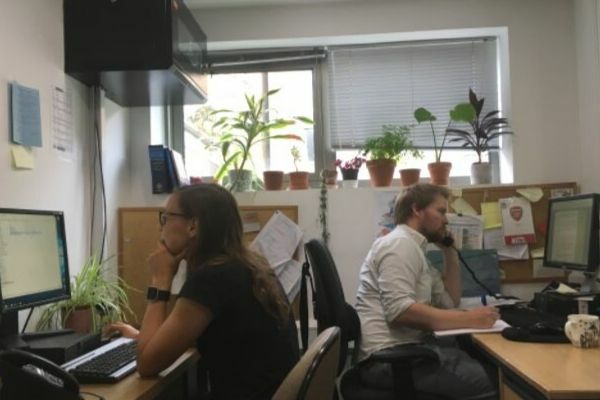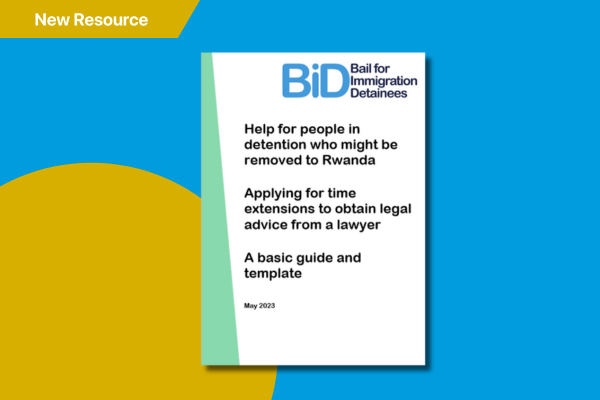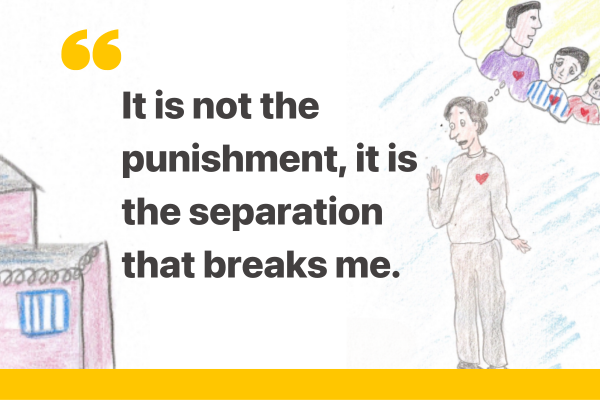As BID turns twenty years old, we want you to help us #EndDetention so that we are no longer needed. This summer we have a range of Anti-Birthday gifts ranging from £15 to £250 which can be purchased to support our work. Over the next few weeks, we will be focusing on the many barriers to justice our clients face and how each gift can help address these.
People detained in prisons are treated as if they were serving a prison sentence when in fact they are only detainbed in prison for immigration reasons. They receive no legal advice and have no access to mobile phones. By purchasing the £30 Prison Pack you could help cover the travel costs for our team to visit people detained in prisons and provide face-to-face legal advice to help them fight for their freedom.
In this article our Prisons’ project Legal Manager Jess Bicknell explains the situation for people detained in prisons and why the end of this inhumane practice is long overdue.
How are people detained in prison under immigration powers?
Any foreign national in the UK can be detained under immigration powers at the end of their custodial sentence. They are detained in prisons under ‘remand’ conditions, with no clear end to their sentence. The UK is the only country in the European Union that does not have a statutory limit on the length of immigration detention. Furthermore, the decision to detain is made by an individual immigration officer and is not automatically subject to independent review at any stage. This means that, in many cases, the Home Office is never required to justify its decision to deprive an individual of their liberty.
What are the conditions like for people detained in prison?
Immigration detainees held in prisons experience the same restrictions as the general prison population and can spend up to 23 hours a day confined to their cell. They often have to decide how they spend their limited time outside of their cell, for example choosing between whether to exercise, shower or make a phone call on any given day.
Internet access is normally prohibited in prisons, visiting times are restricted, and telephone access is severely limited. Detainees cannot receive telephone calls and are permitted a limited number of telephone numbers that they can hold on their ‘pin’ at a time; it can take a week or longer to add a new telephone number to a pin. This means that, without the assistance of a friend or family member in the community, contacting a solicitor by telephone or post can take a prohibitively long time.
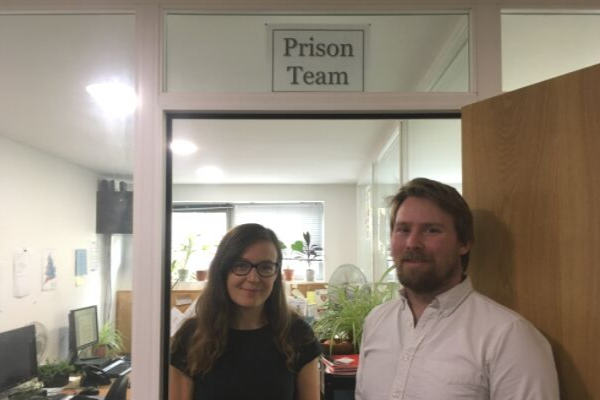
What happens to vulnerable people detained in prisons?
For people detained in Immigration Removal Centres there is Home Office policy in place designed to safeguard potentially vulnerable people by identifying those persons whose health may be seriously damaged by detention. This policy does not apply to people detained in prisons and there are no equivalent safeguards. As a result vulnerable people are regularly held in prison under immigration powers sometimes without access to appropriate or adequate medical care, and with no mechanism for informing the Home Office of their vulnerability and having the appropriateness of their detention reviewed as a result. These include people being detained despite evidence of torture, people with severe mental and physical health problems, and survivors of rape.
What are the barriers to accessing legal advice in prisons?
Unlike in Immigration Removal Centres (IRCs), there is no advice scheme for immigration detainees within prisons. It is up to the individual, who has limited communication channels, to contact a solicitor and convince them to visit the prison to take instructions on their case.
This is especially challenging in remote areas of the country where there are ‘legal aid deserts’ with no legal aid practitioners. Of the 68 prisons where people were detained under immigration powers between October and December 2018, 22 prisons did not have any legal aid immigration lawyers within a 25 mile radius.
There is a clear lack of information about detainees’ eligibility for publicly funded immigration advice. The majority of detainees we encounter in prisons are eligible for legal aid immigration advice but are unaware of this and do not have representation.
Although deportation is not automatically covered by legal aid, detainees can apply for Exceptional Case Funding. However, even with funding it can be difficult to find lawyers willing to take on these complex cases, due to difficulties in accessing detainees in prisons and in taking instructions.
Our latest Legal Advice survey once again raised major concerns about the complete lack of legal aid immigration advice in prisons. Out of 43 people in the survey who said that they were held in prison before being moved to a detention centre, only 3 (7%) had received immigration advice whilst in prison. One interviewee, who had been forced to challenge his deportation by using the prison library to familiarise himself with immigration law, said that ‘help in prison is non-existent for immigrants’.
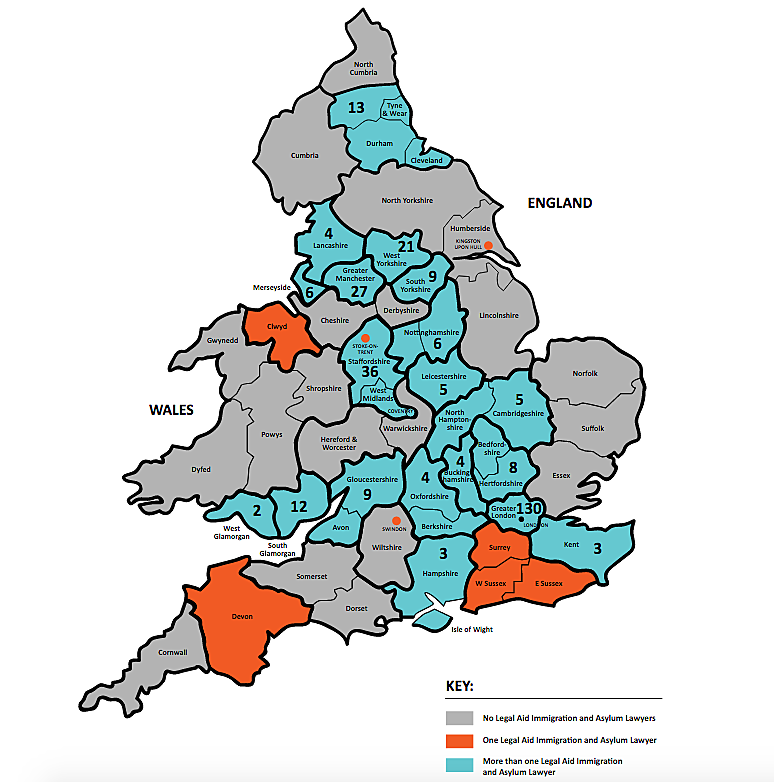
How does being detained in prison affect people?
The routine use of prisons for immigration detainees goes against recommendations from international human rights bodies. Immigration detention is intended to be purely administrative and not punitive in nature. But we would argue that detention in prison with no sentence end date to work towards is cruel and inhumane treatment.
Even for those people who have a legal basis for remaining in the UK, without legal advice, it can be extremely stressful and traumatic to try to navigate the maze of immigration law and deportation is more likely to go ahead.
As you can imagine this has a huge impact on people’s mental and physical health as tragically evidenced in the well-known case of Michal Netyks who on the completion of his criminal sentence had packed his bags and was looking forward to being reunited with his partner. Instead of being released, he received paper work from the Home Office saying that he would remain in custody pending possible deportation to Poland. Just hours later he took his own life. The Senior Coroner was critical of the Home Office’s handling of the case and criticised the lack of legal advice for foreign nationals liable for deportation held in prison. The inquest jury concluded that his death was in part contributed to by the immigration deportation process. Oliver Carter, the public law specialist at Irwin Mitchell representing the family, said:
“The jury heard that Michal was told he would be removed from the UK, but he is unlikely to have understood that he had a right to appeal the decision to deport him. The documents from the Home Office were only provided to him in English, and the immigration officer who was present in the prison that day did not speak to Michal.
We know Michal would have found it difficult to access specialist legal advice to appeal against deportation, but with advice from an immigration lawyer he could have proved to the Home Office that he had been living and working in the UK for 12 years and that he should not be deported.”
Unfortunately many of the people that we come into contact with have found themselves in the same position has Michal with no access to legal advice and not knowing where they can turn to for help.
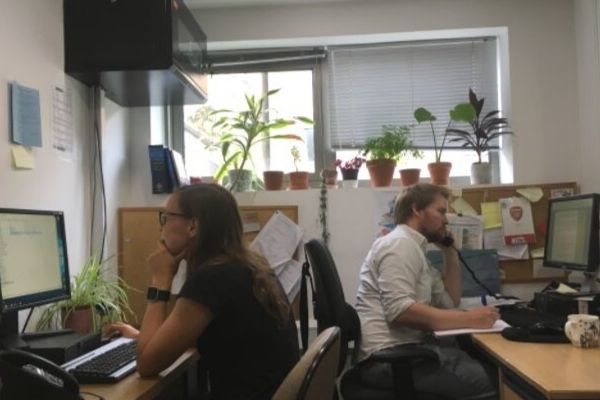
How does BID work with people detained in Prison?
BID’s Prison Project is dedicated to providing representation for bail for people held in prison under immigration powers. In addition to BID’s DIY advice service, where people detained in prisons can call or write to us for advice on how best to complete bail application forms, we also provide a full-representation bail service for people detained long term, separated from children by detention, or who have serious mental or physical health conditions. For these clients we prepare their evidence and grounds and provide a barrister to represent them at the tribunal.
We also currently run workshops and advice sessions in a number of prisons (including HMPs Bronzefield, High Down, Pentonville, Peterborough, Wandsworth, and Wormwood Scrubs), and distribute self-help literature on bail and deportation.
What advice would you give to someone detained in prison or someone supporting someone detained in a prison?
Legal aid advice for bail is in principle available to anyone detained under immigration powers who cannot afford to pay for legal advice. If you have access to the internet you can use the ‘find a solicitor’ function on the Law Society website to find a solicitor near you. Although, as explained at length above, it can be very difficult to find a lawyer to take your case on, you should keep trying and keep a record of all the firms you have tried and the number of times you have contacted them. Evidence of your attempts to find a solicitor may be helpful if your case goes to appeal or Judicial Review.
Keep a hold of all documents that you have been given and try to keep them organised, even if they do not seem important. These may be important to your case at a later date.
You will remain under licence upon release from prison until your sentence end date. It is important to find out who your probation officer is. If you have an address to be released to, this will need to be approved as suitable by your probation officer before your release.
You can write to your local MP to complain about the use of prisons for immigration detention and ask for a change to the law to stop prisons being used for immigration purposes. This may not help you or your family member get out of prison immediately, but if enough voices are heard it may help those in the future.
You can also write to our Prison team:
Bail for Immigration Detainees (BID)
1b Finsbury Park Road
London N4 2LA
Or call our advice line on 020 7456 9750 Monday – Thursday 10am to 12 midday.
We also have useful resources available here on our website.

Our latest Legal Advice Survey found that just 7% of people held in prison before being moved to a detention centre said they had received immigration advice whilst in prison.
Your donation could help cover the travel costs for our team to visit people detained in prisons and provide face-to-face legal advice to help them fight for their freedom.

